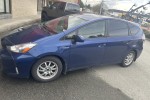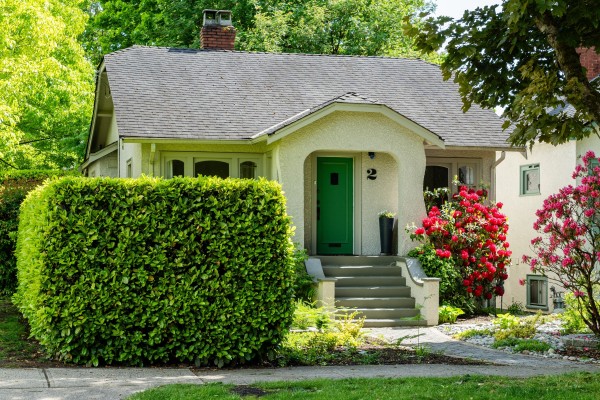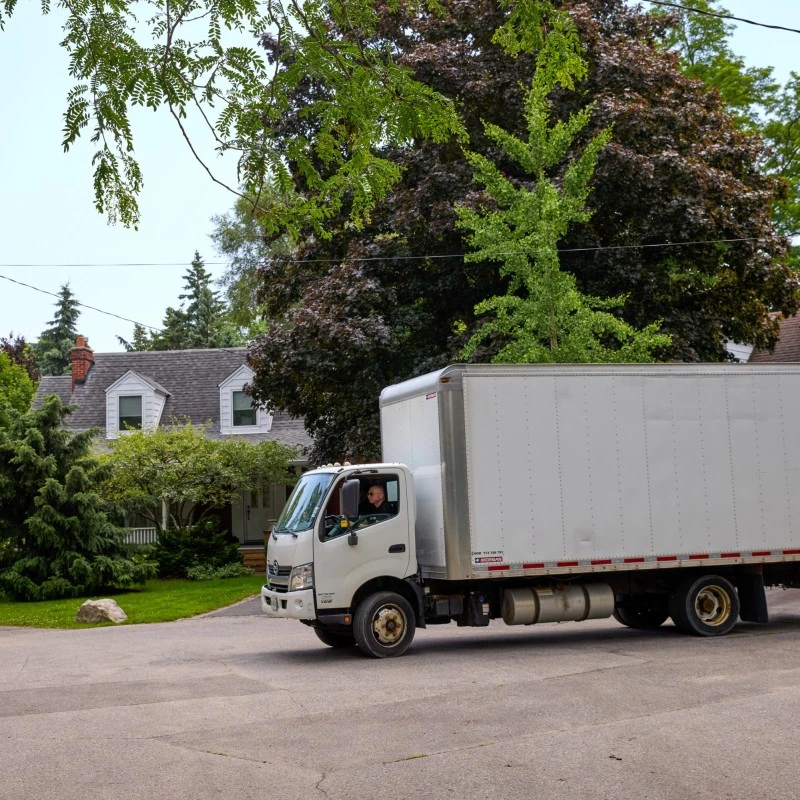The Cost of Living in Toronto [2025]

![The Cost of Living in Toronto [2025] The Cost of Living in Toronto [2025]](https://cdn.topmove.ca/image/blog/dd6c3bb23d965084ae5208a3ae36590a.jpeg)
If cultural diversity is what you are looking for, Toronto is the place to be. A true metropolis, the city offers many cultures, languages and cuisines all in one place.
As Canada’s economic nucleus, there are abundant job opportunities in various industries. This draws professionals and entrepreneurs from all over the world.
Toronto has well-planned neighbourhoods and intuitive public transit, top-quality public services, and extensive green spaces all contributing to a high standard of living.
If it sounds too good to be true, for certain demographics, it is. The cost of living in Toronto ties with Vancouver as the most expensive cities in Canada. If you are considering a move to Toronto, consider the costs of living there so that you can be sure that it's a suitable choice.
Reasons to move to Toronto
There are plenty of significant work opportunities across various sectors. Most of these jobs pay well, making it realistic to settle down here.
As Canada’s financial capital and home to the Toronto Stock Exchange, many find careers in banking, investments, insurance and financial services. The tech industry is exploding, making Toronto a hub for startups, software development and AI. There are leading healthcare and research institutions in Toronto, always hiring. The media and entertainment sector hosts film, television and digital content production. Home to prestigious universities and colleges,
as well as booming retail and hospitality industries, Toronto is a magnet for professionals looking to anchor down.
Annual salaries in Toronto average around CA$80,000, while household incomes average around CA$165,000 per year.
What’s different about Toronto?
Toronto is to Canada what New York, NY is to the USA. Toronto is the cultural diversity capital of Canada, it boasts economic significance, and its culinary, art and music scenes are the heartbeat of the city. It’s truly one of the most multicultural and cosmopolitan cities in the world.
The quality of life is unmatched, yet It’s also the most expensive city in Canada (besides Vancouver).
Despite the high price of living in Toronto, many of its 2.8 million residents feel that the benefits of living there are worth the cost.
Cost of living in Toronto
Renting in Toronto

There is a high demand for rentals causing elevated rental prices, especially in popular neighbourhoods. Renters will pay more to be closer to the city centre, as these locations have best access to public transportation and amenities.
Luckily, the diversity of Toronto’s neighbourhoods offers options to suit different budgets.
Here is a list of some of the best neighbourhoods to rent in based on (relative) affordability, and access to public transit and amenities:
-
Annex
-
Liberty
-
Bloor West Village
-
Yonge & Eglinton
-
Scarborough
-
North York
-
Cabbagetown
-
The Junction
-
The Beaches
-
High Park North
-
Kensington Market
It’s always a good idea to study the map and figure out transportation and commuting routes when deciding on a location.
The average monthly rent for a 1-bedroom apartment in Toronto is a whopping CA$2,350. 2 bedrooms average at CA$3,160 and expect to pay CA$4,000 - CA$5,000 for anything with three bedrooms or over.
To make things a little more affordable, you can opt to share a place with roommates. The best online platforms to find or advertise room rentals are:
-
Craigslist
-
Kijiji
-
Facebook Marketplace
-
Roomies.ca
-
Rentals.ca
-
Zillow
-
Roomster
-
Zumper
Buying property in Toronto
The current average house price in Toronto is CA$1,700,000. According to the Financial Post, Canada’s premier business newspaper, the average Toronto house price could rise up to CA$2 million in the next ten years.
Of course, location is everything. You can still find homes in the CA$800,000 - CA$900,000 range in areas that include but aren’t limited to:
-
Islington-City Centre West
-
York University Heights
-
Woburn
-
Kingsview Village - The Westway
-
Niagara
-
Mt. Pleasant West
Toronto ranks #2 on the list of most expensive real estate of all Canadian cities, sandwiched between Vancouver which takes first place, and Victoria at third place.
Toronto’s neighbourhoods of interest
25 municipalities make up the city of Toronto, including urban, suburban and rural areas.
Here are some of the most popular areas in Toronto:
Kensington Market

Pretty much everyone has heard of (or been to) Kensington Market. It’s artistic, quirky, and multicultural, and the narrow streets are filled with endless vintage and consignment shops, one-of-a-kind boutiques, and multiple options for international cuisine. It also has a huge market filled with vendors, murals and buskers. Kensington is laid-back and creative, attracting artists, students and lovers of culture.
Average rent for a 1-bedroom apartment in Kensington Market is CA$2,000 and the median home price is CA$1,350,000.
Queen West
Queen West is young and trendy, with streets lined with galleries, boutiques and street art. Nightlife is hot, and the area draws in artists, musicians, fashionistas, and anyone else looking for cutting-edge urban living.
Average rent for a 1-bedroom apartment in Queen West is CA$2,800 and the average home price is CA$637,000.
The Annex
Students, academics and intellectuals flock to the Annex because it’s located right near the University of Toronto. Huge tree-lined streets are filled with historic homes and eclectic cafes, bookstores and bars. The Annex also hosts the Royal Ontario Museum and the historic Bloor Cinema.
Average rent for a 1-bedroom apartment in The Annex is CA$2,250 and the average home price is CA$1,450,000.
Liberty Village
Liberty Village is where tech entrepreneurs, creatives and other professionals converge. It’s full of renovated old factories that now serve as lofts and offices, adding a chic, industrial ambience to the dwellings. One of the nicest things about the area is that it offers easy access to surrounding parks and waterfront.
Average rent for a 1-bedroom apartment in Liberty Village is CA$2,850 and the average condo price is CA$635,000.
The Beaches
Toronto residents love the Beaches as an escape from the busy city hustle. There’s a scenic waterfront with a long boardwalk, beaches and lots of green spaces. Queen Street East feels like a small town with its little shops, cafes and ice cream parlours. Community events are big here, such as the annual Beaches International Jazz Festival.
Average rent for a 1-bedroom apartment in The Beaches is CA$2,950 and the average home price is CA$1,590,000.
Things to do in Toronto
Toronto has something for all types of people from foodies, fashionistas and sports fans, to history buffs and music lovers.
Royal Ontario Museum
As one of Canada’s largest museums, the ROM hosts extensive exhibits on natural history, international cultures, and art.
Entree fee ranges from CA$24 - CA$30 depending on the season.
Ripley’s Aquarium of Canada
A place to get up close with marine life including interactive exhibits and a walk-through tunnel aquarium.
Admission prices are as follows: adults: CA$50, youth aged 6-13: CA$33, Children aged 3-5 CA$15, and seniors aged 65 and older CA$33.
Art Gallery of Ontario
AGO has one of Canada’s largest collections of art, including Canadian, Indigenous and international pieces. There are also special exhibitions and art programs.
Adult single-day admission (18+ years) is CA$30, with the option to purchase an AGO Annual Pass for an additional CA$10, providing unlimited visits.
Youth aged 10-17 can get a single-day pass for CA$15, while Ontarians under 25 years old receive free admission.
Children aged 0-9 and Indigenous Peoples also enjoy free admission.
Ontarians aged 18-24 must show valid ID to claim their free annual pass, while Annual Pass holders, Members, and Donors receive unlimited visits throughout the year.
Additionally, youth aged 10-17 and those with an Annual Pass (14–24 years) are free.
On the first Wednesday of each month, admission is free from 6 pm to 9 pm.
St Lawrence Market
The St. Lawrence Market started in the 19th century, with tourists and locals heading there to shop for fresh produce, gourmet foods, artisanal products, and local delicacies.
High Park

This large urban park in the middle of the city hosts multiple walking trails, gardens and a zoo.
Kensington Market
A perfect spot for vintage clothing enthusiasts, lovers of culture, and collectors of quirky, whimsical things.
Hockey Hall of Fame
The beloved sport of Canada has its own Hall of Fame—an interactive museum with exhibits featuring legendary players and the iconic Stanley Cup.
Admission prices are as follows: General admission for individuals aged 14 to 64 is CA$25, and youth aged 4 to 13 is CA$15. Seniors aged 65 and older: CA$20, and children aged 3 and under: free.
Other notable activities to check out are the CN Tower, the Distillery District, the Toronto Islands, Casa Loma gothic revival mansion, and shopping on Queen Street West.
A cinema ticket typically costs between CA$15 and CA$20. Toronto Leaf's hockey games generally range from CA$80 to CA$250, depending on the seat and game. Toronto Blue Jays baseball tickets usually range from CA$20 to CA$80, with prices varying based on seat location and game.
Toronto Events
Toronto’s major events are famous around the world and draw large local and international crowds.
Toronto International Film Festival
This huge and prestigious festival in September attracts celebrities, filmmakers and devoted fans from around the world.
Regular film (includes tax and fees)
Adult: CA$16
Senior or Student (with valid ID): CA$13.50
Child (ages 3–12): CA$12.25
Member 365: CA$12
Member (Contributors Circle +): CA$8
3D, 70mm, Special Presentation (includes tax and fees)
Adult: CA$19
Senior or Student (with valid ID): CA$16
Child (ages 3–12): CA$14.25
Member 365: CA$14.25
Member (Contributors Circle +): CA$9.50
Premium Screening (includes tax and fees)
Adult: CA$26
Senior or Student (with valid ID): CA$22
Child (ages 3–12): CA$19.50
Member 365: CA$19.50
Member (Contributors Circle +): CA$13
*Children under the age of three are allowed free entry. Prices include HST and a CA$1 service fee for non-member-price tickets.
Caribana (Toronto Caribbean Carnival)

Toronto has the third biggest Caribbean diaspora, after the UK and the USA. Caribana is North America's largest annual cultural festival, featuring a grand parade, live music, and mind-blowing costumes. Street parties and events fill the city from late July to early August.
Pride Toronto
Pride Toronto is celebrated with a massive parade, concerts and celebrations that make up one of the largest Pride festivals in the world.
Canadian National Exhibition
The CNE, also known as "The Ex," is a fair that dates back to 1879 and runs for 18 days leading up to Labor Day. Check out amusement rides, games, food stalls, exhibits, and live performances at this huge event that definitely isn’t just for kids.
General Admission (ages 14-64): CA$25
Child Admission (ages 5-13): CA$20
Children under 4: Free
Seniors (65+): CA$20
Nuit Blanche
Nuit Blanche is an annual all-night arts festival and open-air gallery featuring contemporary art installations, performances, and interactive exhibits. The event is held in November and transforms the streets of Toronto to the delight of thousands of art lovers.
READ: The Best Places to Buy Art in Toronto
Toronto Raptors and Maple Leafs Playoffs
Toronto fans get playoff fever whenever the local teams make the playoffs. Fan events and public viewings add to the charged atmosphere that brings Toronto sports fans together to root for their beloved teams.
Toronto Raptors playoff tickets:
Lower-end seats: Prices start around CA$150 to CA$200.
Mid-range seats: CA$300 to CA$500.
Premium seats (closer to the court): CA$800 to over CA$1,500.
Toronto Maple Leafs playoff tickets:
Lower-end seats: Usually start around CA$200 to CA$300.
Mid-range seats: Range from CA$400 to CA$700.
Premium seats (closer to the ice): CA$1,000 to CA$2,500 or more.
The cost of food in Toronto
Toronto's food scene is a blend of global cuisines, cutting-edge dining experiences and fusion food. Enjoy everything from street food and food trucks to high-end restaurants. Of course, prices vary depending on the type of experience.
Grocery costs

Grocery costs vary depending on where you do your shopping and what type of diet you and your family have. The following averages reflect a balanced diet with all four food groups.
A single person usually spends between CA$200 and CA$300 per month on groceries, while a family of four can expect to spend around CA$800 to CA$1,000.
Cost of dining out

Toronto currently hosts a whopping 9,378 restaurants, according to Google Maps data. From food trucks to high-end boutique restaurants, there’s something for every occasion and budget.
Cheap eats CA$3 - CA$20
We’ve found some of the cheapest places to find a meal in Toronto:
Banh Mi Boys - Vietnamese
Gale’s Snack Bar - Sandwiches, burgers, fries
Rasta Pasta - Jamaican/Italian fusion
Samosa King - Samosas and sides
Mid-Range CA$15 - CA$40
Pizzeria Libretto - Wood-fired pizza
Kinton Ramen - Ramen
Byblos - Eastern Mediterranean
Planta - Plant-based, vegan, sustainable
Fine Dining CA$150 - CA$200
Alo - French cuisine
Canoe - Canadian
Edulis - European-inspired
Getting Around in Toronto

Toronto is a sprawling city where traffic is congested more often than not, especially during rush hours. Fortunately, the city offers efficient public transit options. Toronto’s public transportation is managed by the Toronto Transit Commission (TTC), and transit passes are both affordable and convenient.
The Toronto Subway has four main lines: Yonge-University, Bloor-Danforth, Scarborough, and Sheppard, covering the city and extending to suburban areas. A single ride costs CA$3.35, and monthly passes are priced at CA$156. The Streetcar network operates throughout downtown Toronto and is priced the same.
The GO Transit system provides regional train and bus services connecting Toronto with surrounding areas, including the Greater Toronto Area (GTA) and beyond. Fares vary based on distance and start at around CA$6 for shorter trips.
The UP Express is a train service linking Toronto Pearson International Airport with downtown Toronto, making airport transfers quick and easy. A one-way ticket costs CA$13, and a return trip is CA$24.
The PRESTO Card system simplifies fare payments for all transit services. You can load funds onto your PRESTO Card at various locations, including TTC stations and online. Schedules and route information are available on the TTC website or through transit apps. A single ride is CA$3.35, and the PRESTO Card itself costs CA$6, which is refundable when you return the card.
Schedules and route information are available on the TTC website or through transit apps.
Parking in Toronto
Street Parking
Rates: CA$3 to CA$6 per hour
Public Parking Lots
Rates: CA$3 to CA$6 per hour, with daily rates between CA$15 and CA$30
Parkades
Rates: CA$10 to CA$40 per day, depending on the location and duration.
What do our customers say?





![How much do you need to earn to live comfortably in Toronto? [2025] How much do you need to earn to live comfortably in Toronto? [2025]](https://cdn.topmove.ca/image/blog/de7b110360e9510bfcb89724b7ef9af4.jpeg)

![The Cost of Living in Canada [2025] The Cost of Living in Canada [2025]](https://cdn.topmove.ca/image/blog/fd5e6f8de7a01a874376620f785ffdba.jpeg)
![The Cost of Living in Montreal [2025] The Cost of Living in Montreal [2025]](https://cdn.topmove.ca/image/blog/3d9ba911fae51ef6bf042019500f2c4b.jpeg)
![The cost of living in Ottawa [2025] The cost of living in Ottawa [2025]](https://cdn.topmove.ca/image/blog/05c56698337852b128efa8b1144e6466.jpeg)

![The Cost of Living in Calgary [2025] The Cost of Living in Calgary [2025]](https://cdn.topmove.ca/image/blog/44a5bcb6ebf6c658f5c5fe30ab7077c9.jpeg)
![The Cost of Living in Winnipeg [2025] The Cost of Living in Winnipeg [2025]](https://cdn.topmove.ca/image/blog/8874f5688baa4a1291d7eae6c507f8aa.jpeg)
![The Cost of Living in Edmonton [2025] The Cost of Living in Edmonton [2025]](https://cdn.topmove.ca/image/blog/85d8f0085c5276a3f3add5828109b82a.jpeg)
![The Cost of Living in Victoria [2025] The Cost of Living in Victoria [2025]](https://cdn.topmove.ca/image/blog/012c60baf3a9dd52b2112857fe508e4c.jpeg)
![How much do you need to earn to live comfortably in Vancouver? [2025] How much do you need to earn to live comfortably in Vancouver? [2025]](https://cdn.topmove.ca/image/blog/7036030cc91de9cff4153dc88aa88f85.jpeg)
![How much do you need to earn to live comfortably in Victoria? [2025] How much do you need to earn to live comfortably in Victoria? [2025]](https://cdn.topmove.ca/image/blog/f0bdeb7f43a3340afba84793c4fddbac.jpeg)
![How much do you need to earn to live comfortably in Montreal? [2025] How much do you need to earn to live comfortably in Montreal? [2025]](https://cdn.topmove.ca/image/blog/80e0ee82a5a92d9451b96ff875513ee4.jpeg)
![How much do you need to earn to live comfortably in Winnipeg? [2025] How much do you need to earn to live comfortably in Winnipeg? [2025]](https://cdn.topmove.ca/image/blog/d52ddc1f425f60fd553dcc00f7eb0fb5.jpeg)
![How much do you need to earn to live comfortably in Calgary? [2025] How much do you need to earn to live comfortably in Calgary? [2025]](https://cdn.topmove.ca/image/blog/46fef724030602a02f51110ffb3ac569.jpeg)








